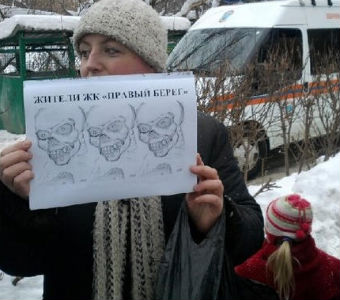Keep European public banks out of Mediterranean region, say NGOs
Press release | 9 March, 2011This week, EU leaders are meeting to agree on a common response to events in the Mediterranean. A coalition of Western and Eastern European NGOs issues a serious warning that the European Investment Bank and the European Bank for Reconstruction and Development are not the right institutions to financially support the transition in the Middle East and North Africa.
Read moreBankwatch contribution to the public consultation process regarding the external dimension of the EU energy policy
Publication | 7 March, 2011The European Neighbourhood and Partnership Instrument (ENPI) strategy paper 2007-2013 for the eastern neighbourhood region involves contradictory strategic objectives. The first of these is sustainable development and environmental protection, which underpins all EU legislation and policies. However, the second priority, the need to ensure the diversification and security of energy supplies to the EU, emphasises the need for further extraction and transportation of the Caspian Seas oil and gas resources to Europe, and thus prioritises it over the development of an environmentally friendly energy sector within the region.
Read moreComplaint regarding the EIB loan to Sostanj lignite power plant TES6
Publication | 28 February, 2011The complaint, filed with the European Investment Bank by Focus Association for Sustainable Development (SI) calls on the bank to withdraw its approval for the project. The complaint addresses the following aspects: premature disbursement of funds failure to assess the project’s compatibility with the 2050 climate targets misleading claims that TEŠ 6 is only a replacement and not an expansion missing clear governmental support to the project
Read moreBankwatch position on the review of the European Neighbourhood Policy
Publication | 25 February, 2011The European Neighbourhood Policy (ENP) gives countries outside the EU the perspective and opportunity to move beyond cooperation to a significant degree of integration. But when it comes to the eastern European neighbourhood partner countries, the assumption that political and social rights will flow and develop as an automatic consequence of economic liberalisation, is only that – an assumption.
Read morePutin’s visit to BXL: Russian NGOs call on Barroso to stop European financing of Russian motorways in light of HR abuses
Press release | 23 February, 2011Ahead of tomorrow’s meeting between Russian PM Vladimir Putin and EU representatives, a coalition of major Russian NGOs is urging President Barroso to make sure that EU financing institutions halt their participation in toll motorway projects in Russia until there are serious improvements in the human rights and public participation situation associated with these projects.
Read moreCivil society letter urging EC president Barroso to halt EU financing for Russian toll roads
Publication | 23 February, 2011A coalition of major Russian NGOs is urging President Barrosso to make sure that EU financing institutions halt their participation in toll motorway projects in Russia until there are serious improvements in the human rights and public participation situation associated with these projects.
Read moreShadow report on discrimination in Serbia doesn’t cast the best light on EIB and EBRD
Blog entry | 18 February, 2011Roma’s discrimination in Serbia is to be discussed by the UN. Serbian member group CEKOR is contributing with experience from the Gazela resettlement process.
Read moreEBRD can’t stay away from Russian motorways – Khimki destruction goes ahead while women and children are being arrested
Blog entry | 11 February, 2011Yesterday, police in Khimki arrested an activist of the Movement for the Defence of Khimki Forest. The activist Alla Chernyshova and her daughters of 3 and 6 had to spend more than five hours in custody where she was questioned as the main suspect for a false bomb threat.
Read moreSerbian shadow report to the UN Committee on the Elimination of Racial Discrimination
Publication | 9 February, 2011Bankwatch’s Serbian member group Center for Ecology and Sustainable Development (CEKOR) has worked together with three Serbian human rights organisations on a shadow report complementing the country’s official statement to the UN Committee on the Elimination of Racial Discrimination. Analysing the legal and factual status of Roma in Serbia, the shadow report draws heavily on examples from the Gazela bridge rehabilitation project in Belgrade.
Read moreSummary of independent environmental examination of the Moscow-St.Petersburg motorway project, section 15-58 kilometres (Khimki Forest)
Publication | 1 February, 2011The examination was initiated by a coalition of environmental NGOs and carried out by 18 experts in the field of environmental protection, environmental law, forestry, urban planning and transport development. It was handed over to Russian president Medvedev on February 1, 2011.
Read more
